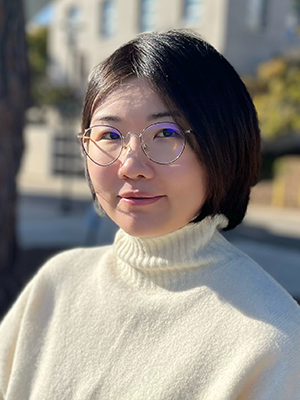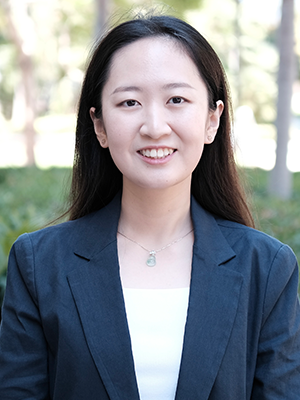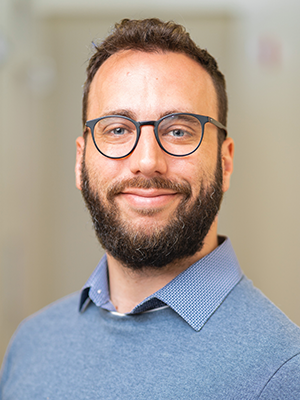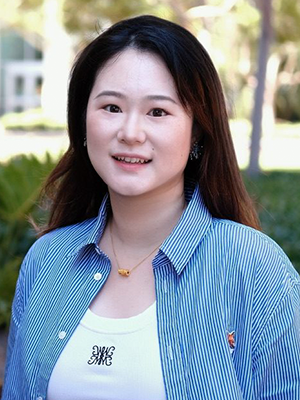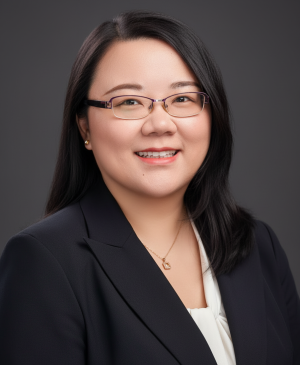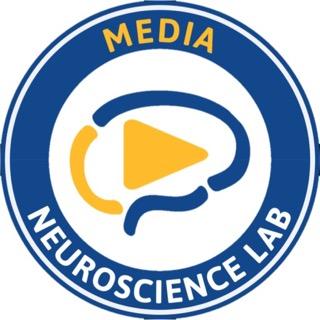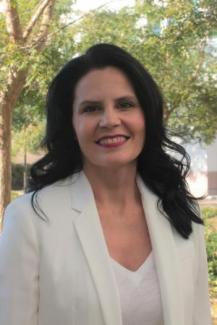Jiaying liu received her Ph.D. from the Annenberg school for Communication, University of Pennsylvania. Her research focuses on health communication, persuasion and social influence, message effects, computational and psychophysiological methods. Her recent research projects include conducting longitudinal analysis on nationally representative survey data to identify factors that predispose youth to cigarette and e-cigarette use; implementing online and eye-tracking experiments to identify persuasive message features and inform campaign formative evaluation; combining crowdsourcing and machine-based textual analysis to annotate large media text corpora; and employing neuroimaging methods to examine the underlying mechanisms of successful and counterproductive communication. Dr. Liu is actively involved in highly collaborative, interdisciplinary work. Her research has been published in leading communication, public health and psychology journals including Journal of Communication, Human Communication Research, Communication Research, Journal of Computer-Mediated Communication, Communication Methods and Measures, Health Communication, American Journal of Preventive Medicine, and Psychological Bulletin. She currently serves as a senior editor for Health Communication. Dr. Liu directs the Communication, Health, and Emerging Media Laboratory (CHARM Lab), and currently serves as the principal investigator on K01 and R21 awards, and a co-investigator on two R01 awards from the National Institutes of Health. She teaches courses in health communication, persuasion and social influence, message effects, and computational textual analysis methods.
The Communication, Health, and Emerging Media (CHARM) Laboratory
The CHARM lab examines the cognitive, emotional, and social mechanisms underlying communication processes that shape people’s behaviors and health decision-making against the backdrop of the current new media landscape. Employing self-report survey measures, online and eye-tracking lab experiments, computerized textual analysis, and neuroimaging methods, researchers in the lab focus on theory-based persuasive health message design, social media analytics to unveil and track user-generated health discussions, and identifying environmental and individual level factors contributing to health behavior outcomes. CHARM lab looks to identify ways in which communication could be optimally leveraged to promote desirable health behavior changes, especially among vulnerable, marginalized, and underserved groups.
Selected Publications:
Liu, J., Wang, Y., & Gay, J. (2025). Promising campaign themes to promote active pro-environmental behaviors among U.S. coastal residents. Environmental Communication, 1-25. DOI: 10.1080/17524032.2024.2441948
Liu, J., Shi, Z., Fabbricatore, J. L., McMains, J. T., Worsdale, A., Jones, E. C., Wang, Y., & Sweet, L. H. (2024). Vaping and smoking cue reactivity in young adult non-smoking electronic cigarette users: A functional neuroimaging study. Nicotine and Tobacco Research, ntae257. DOI: 10.1093/ntr/ntae257
Liu, J., Shi, R., & Hornik, R. (2024). Modification mechanisms of descriptive norm perceptions toward vaping: The role of behavior prevalence and group size in an online setting. Health Communication, 1–13. DOI: 10.1080/10410236.2024.2344883
Yang, S., Cotter, L. M., Lu, L., Kriss, L.A., Minich, M., Liu, J., Silver, L., Cascio, C.N. (2024). Countering online marketing and user endorsements with enhanced cannabis warning labels: An online experiment among at-risk youth and young adults. Preventive Medicine. DOI: 10.1016/j.ypmed.2024.107877
So, J., & Liu, J. (2023). The role of audience favorability in processing (un)familiar messages: A heuristic-systematic model perspective. Human Communication Research, 49(4):383-395. DOI: 10.1093/hcr/hqad024
Siegel, L., Liu, J., Gibson, L., & Hornik, R. (2022). Not all norm information is the same: Effects of normative content in the media on young people’s perceptions of e-cigarette and tobacco use norms. Communication Research, 00936502211073290. DOI: 10.1177/00936502211073290
Hornik, R., Binns, S., Emery, S., Epstein, V. M., Jeong, M., Kim, K., Kim, Y., Kranzler, E. C., Jesch, E., Lee, S. J., Levin, A. V., Liu, J., O’Donnell, M. B., Siegel, L., Tran, H., Williams, S., Yang, Q., & Gibson, L. A. (2022). The effects of tobacco coverage in the public communication environment on young people’s decisions to smoke combustible cigarettes. Journal of Communication, jqab052. DOI:10.1093/joc/jqab052
Lee, S. J., & Liu, J. (2021). Leveraging dynamic norm messages to promote counter-normative behaviors: The moderating role of current and future injunctive norms, attitude and self-efficacy. Health Communication, 38(6), 1071–1079. DOI: 10.1080/10410236.2021.1991638
Liu, J., Phua, J., Krugman, D., Xu, L., Nowak, G., & Popova, L. (2020). Do young adults attend to health warnings in the first IQOS advertisement in the U.S.? An eye-tracking approach. Nicotine & Tobacco Research, 23(5), 815-822. DOI: 10.1093/ntr/ntaa243
Murashka, V., Liu, J., & Peng, Y. (2020). Fitspiration on Instagram: Identifying topic clusters in user comments to posts with objectification features. Health Communication, 36(12), 1537–1548. DOI: 10.1080/10410236.2020.1773702
Liu, J., O’Donnell, M., & Falk, E. (2020). Deliberation and valence as dissociable components of counterarguing among smokers: Evidence from neuroimaging and quantitative linguistic analysis. Health Communication. 36(6), 752-763. DOI: 10.1080/10410236.2020.1712521
Liu, J., Lochbuehler, K., Yang, Q., Gibson, L. A., & Hornik, R. C. (2020). Breadth of media scanning leads to vaping among youth and young adults: Evidence of direct and indirect pathways from a national longitudinal survey. Journal of Health Communication, 25(2), 91–104. DOI: 10.1080/10810730.2019.1709925
Liu, J., Siegel, L., Gibson, L. A., Kim, Y., Binns, S., Emery, S., Hornik, R. C. (2019). Toward an aggregate, implicit and dynamic model of norm formation: Capturing large-scale media representations of dynamic descriptive norms through automated and crowdsourced content analysis. Journal of Communication, 69(6), 563–588. DOI: 10.1093/joc/jqz033
Sangalang, A., Volinsky, A.C., Liu, J., Yang, Q., Lee, S., Gibson, L.A., & Hornik, R.C. (2019). Identifying potential campaign themes to prevent youth initiation of e-cigarettes. American Journal of Preventive Medicine, 56(5), S65–S75. DOI: 10.1016/j.amepre.2018.07.039
Liu, J., & Shi, R. (2018). How do online comments affect perceived descriptive norms of e-cigarette use? The role of quasi-statistical sense, valence perceptions, and exposure dosage. Journal of Computer-Mediated Communication. DOI:10.1093/jcmc/zmy021
Liu, J., Zhao, S., Chen, X., Falk, E., & Albarracín, D. (2017). The influence of peer behavior as a function of social cultural closeness: A meta-analysis of normative influence on adolescent smoking initiation and continuation. Psychological Bulletin, 143(10):1082–1115. DOI: 10.1037/bul0000113
Liu, J., & Hornik, R. (2016). Measuring exposure opportunities: Using exogenous measures in assessing effects of media exposure on smoking outcomes. Communication Methods and Measures, 10(2–3), 115–134. DOI: 10.1080/19312458.2016.1150442

